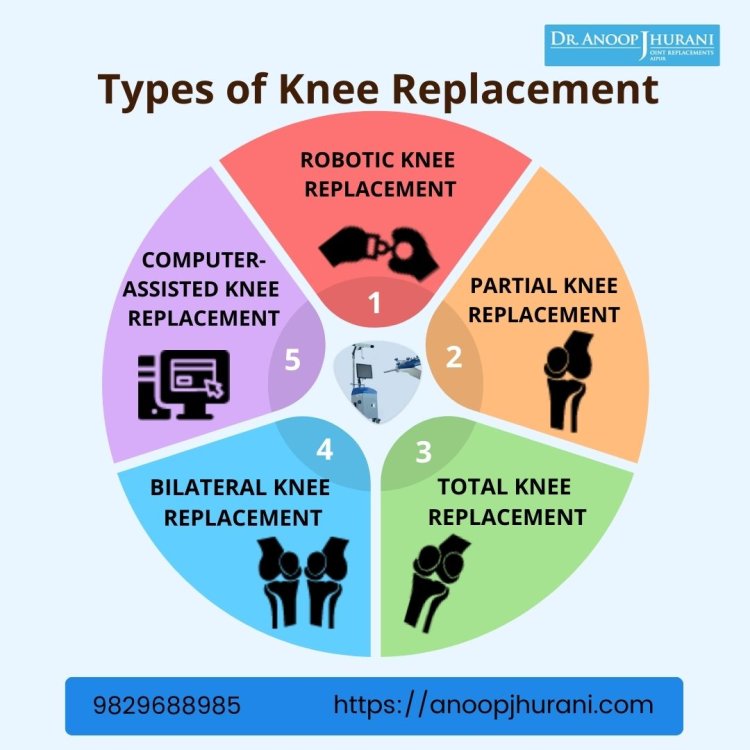Types of Knee Replacement Surgery and Which One to Choose
Dr. Anoop Jhurani offers orthopedic services such as knee and hip replacements. He is a renowned orthopedic surgeon in Jaipur, India.
Share this Post to earn Money ( Upto ₹100 per 1000 Views )

Knee replacement surgery is a common procedure to replace a damaged or diseased knee joint with an artificial implant. There are different types of knee replacement surgeries available, and the choice of which one to undergo depends on the individual's condition and needs. In this article, we will discuss the various types of knee replacement surgeries done by Dr. Anoop Jhurani and help you understand which one is suitable for you.
1. Robotic Knee Replacement:
Robotic-assisted knee replacement is a minimally invasive procedure that uses a robotic arm to assist the surgeon in performing the operation. It offers greater precision and accuracy, resulting in better outcomes and quicker recovery.
2. Partial Knee Replacement:
Partial knee replacement surgery is a minimally invasive procedure that involves replacing only the damaged part of the knee joint with an implant. It is a suitable option for patients with arthritis in only one compartment of the knee joint.
3. Total Knee Replacement:
Total knee replacement surgery involves replacing the entire knee joint with an artificial implant. It is the most common type of knee replacement surgery and is recommended for patients with severe arthritis affecting the entire knee joint.
4. Bilateral Knee Replacement:
Bilateral knee replacement involves replacing both knees with artificial implants. It is a suitable option for patients with severe arthritis affecting both knees.
5. Computer-Assisted Knee Replacement:
Computer-assisted knee replacement surgery involves using a computer to create a 3D model of the patient's knee joint, which helps the surgeon plan and execute the surgery with greater precision.
Which One to Choose?
The type of knee replacement surgery a patient undergoes depends on various factors, including the extent and location of the knee damage, age, activity level, and overall health. Generally, younger and more active individuals may benefit from partial knee replacement, while older and less active patients may benefit from total knee replacement.








